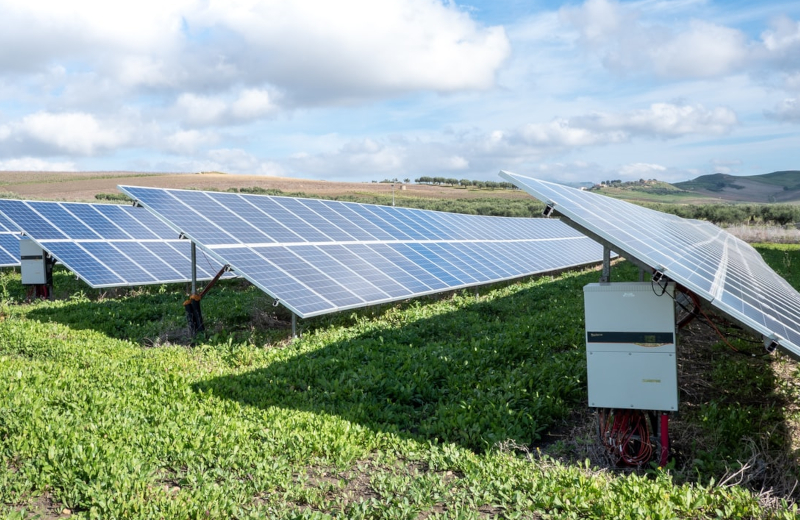
With more than R2.2 billion worth of solar panels imported into South Africa during the first half of 2022, and the pace of imports set to increase dramatically as the country’s energy crisis mounts, the overlooked problem of recycling these panels could result in an environmental hazard in 30 years’ time.
Francois Pretorius, research assistant of the Institute for Futures Research (IFR) at Stellenbosch Business School, says only 10% of the most widely used panel types are recycled in the USA (data unknown for South Africa currently), whilst the rest end up in landfills, causing a serious risk to the environment.
With the government’s newly announced tax incentive program to assist businesses and individuals in transitioning to clean energy through solar panel usage, roof-covered solar panels are consequently about to become as ubiquitous as electric fencing in most South African suburbs.
“Whilst the energy crisis is forcing South Africans to consider alternative energy sources in the form of solar panels, the issue of recycling these panels has been overlooked. Solar panels have a limited lifespan, averaging around 20 and 30 years, due to the solar panels’ efficiency decreasing over time and therefore requiring replacement. Solar panel recycling is a relatively new concept, and South Africa’s need to recycle these panels is a rather glaring long-term problem with recycling plants unequipped to deal with them.”
“The panels contain toxic substances such as lead (Pb), cadmium (Cd), and other harmful chemicals that are leached into the environment when disposed of in a non-controlled manner. The release of these chemicals, in turn, could drain into the groundwater sources, potentially contaminating drinking water. The true gravity of the problem becomes apparent when one considers that solar waste is projected to increase by at least 4000% over the coming decade.”
Pretorius says the low recycling rate is attributable to PV panels not generating the same types of waste as other easily recyclable products.
“Most recycling plants are unequipped to deal with them. The recycling processes involved also generate large amounts of glass containing toxic dust in conjunction with the emission of other harmful gasses such as nitrogen oxide. The technology and materials employed in solar panel manufacturing are correspondingly constantly evolving, which leaves recyclers playing a constant game of catch-up.”
“A further impinging factor is the high amounts of energy required in the recycling process. And finally, and perhaps most importantly, the recycling process currently costs more than the potential value of the recycled end products.”
He says that the mainstream processes developed thus far allow for the recycling of the three main solar panel components – aluminium, glass, and plastic – equating to more than 90% of a solar panel’s total composition. But he states that this is about to change.
“Veolia – Europe’s first solar panel recycling plant – recently announced their ability to recycle more than 95% of solar panel materials effectively. This is a massive boon for the European circular economy as the recovered materials are consequently sold off to various industrial sector players across the continent. But despite these advancements, the global recycling rate remains very low.”
“Locally, the South African government attempted to address the low recycling rate with an amendment to the National Environmental Management: Waste Act (No. 59 of 2008) – which bans all waste electronic and electrical equipment from landfill. The Extended Producer Responsibility (EPR) regulations of 2021 also made it the responsibility of both solar panel producers and importers to oversee the entire life cycle of their products, i.e., they need to ensure that their products are returned and recycled by an accredited facility once reaching the end of its lifespan. These moves are aimed at environmental protection while concurrently ensuring that the groundwork is lain for the development of a competitive local solar recycling market.”
He questions though whether the legislation will prove effective as it necessitates the establishment of an entirely novel value chain that includes the collection, transportation, sifting, recycling, and sale of recycled solar panel materials.
“Buy-in and effective communication between all relevant stakeholders, including government, consumers, and producers are therefore of pivotal importance. With current projections noting an anticipated increase in the global solar panel recycling market value from $78 Million in 2021 to $1.8 Billion by 2031, the timely establishment of this network is both an environmental and economic imperative. The old saying, ‘one man’s waste is another man’s treasure,’ might never have rung as true as it does in the 21st century, and it’s about time South Africa manages to reap the potential rewards of its previous power-generating mistakes.”
//By Francois Pretorius, research assistant of the Institute for Futures Research